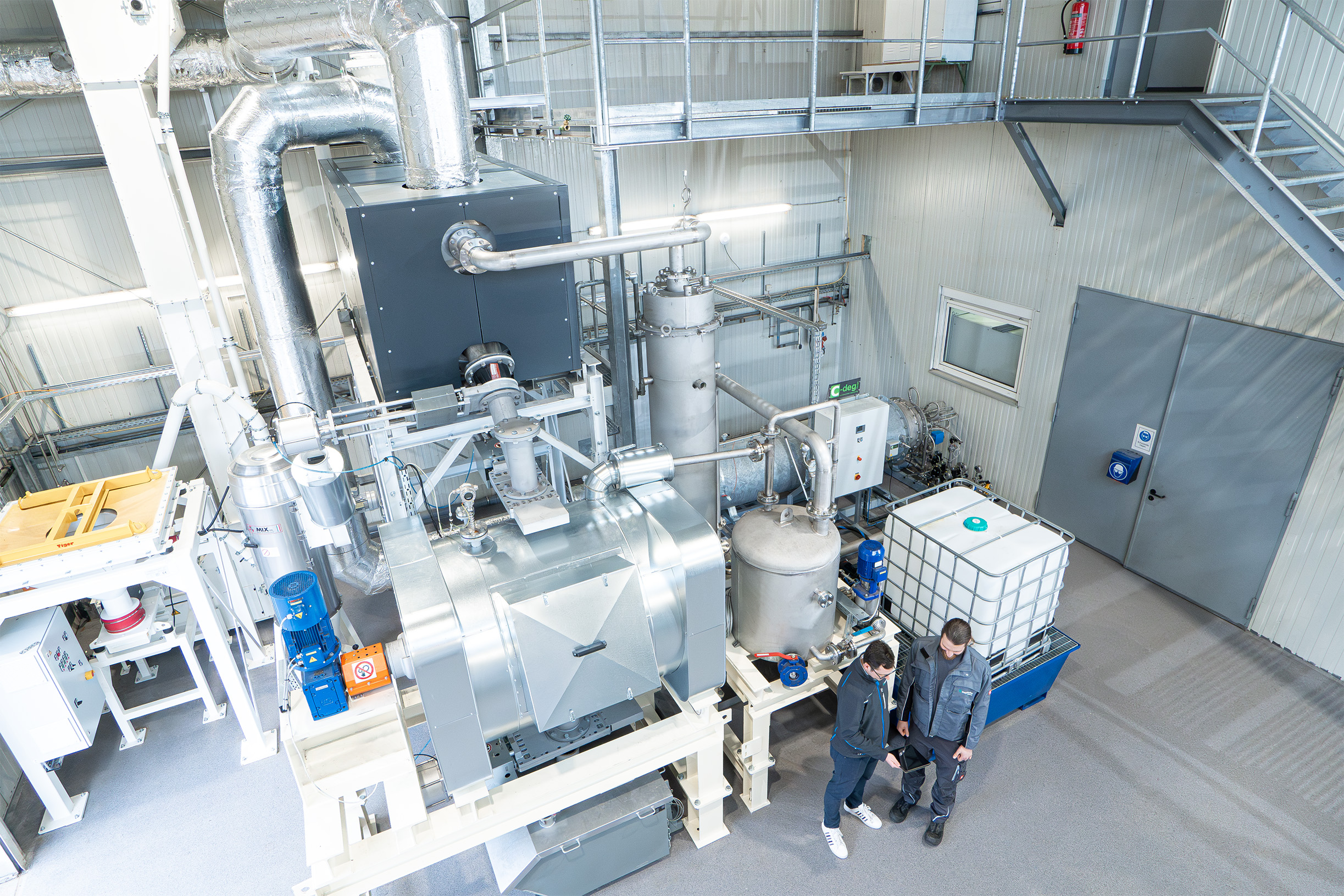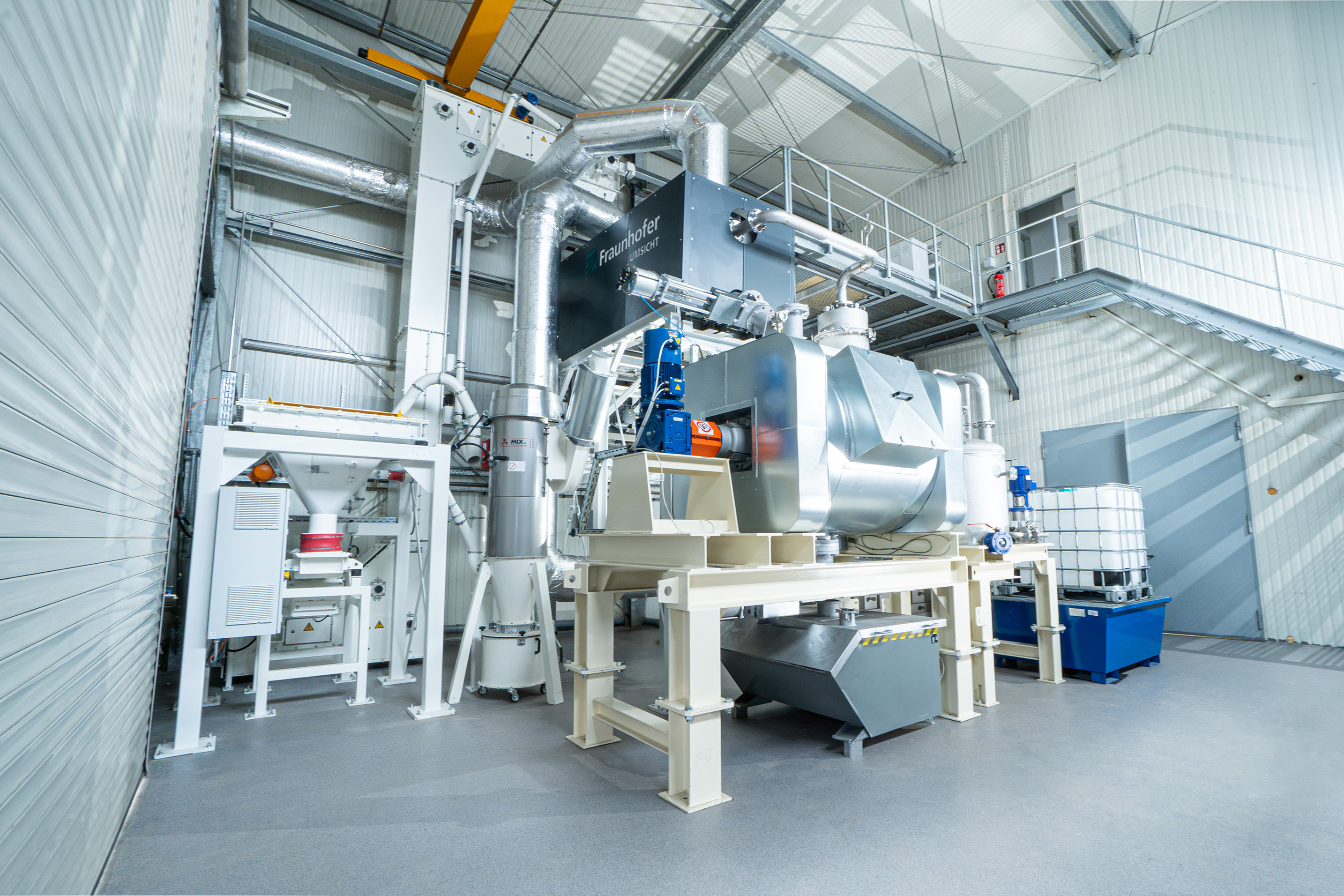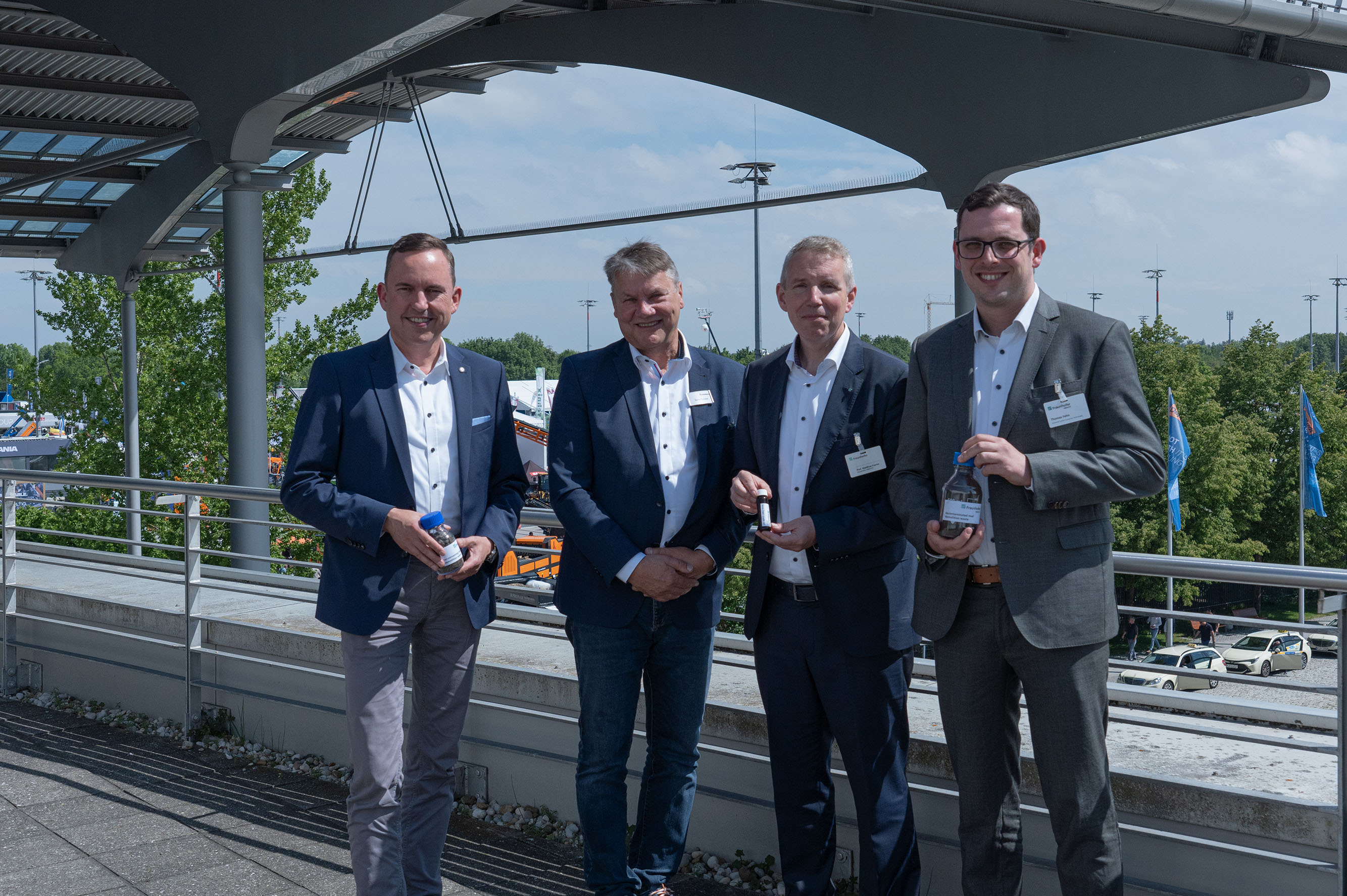Innovative technology for the treatment of tar-containing road demolition waste
The Fraunhofer Institute for Environmental, Safety and Energy Technology UMSICHT has developed a low-temperature process for the treatment of tar-containing road demolition waste. A demonstration plant financed with Fraunhofer's own funds has been in operation at the Fraunhofer Institute UMSICHT in Sulzbach-Rosenberg since April 2024. The first project planning for an industrial plant is due to start at the end of 2024 in collaboration between Grenzebach BSH GmbH and EUROVIA.



Several plant projects are currently being developed in Germany for the recycling of road demolition waste containing pitch and tar. There is a great need for processing capacity for the up to 3 million tons of material that are produced each year. Landfilling is cost-intensive and there are currently only two thermal treatment plants in the Netherlands in Europe. Fraunhofer has now presented a processing technology that works at low temperatures.
Prof. Dr.-Ing. Matthias Franke, Head of the Sulzbach-Rosenberg branch of Fraunhofer UMSICHT, says: »With our process, the temperature for the safe decontamination of road demolition waste containing tar can be significantly reduced. As a result, the minerals are treated gently, which allows them to be reused in high-quality applications. Overall, this improves economic efficiency.«
Two-step low-temperature process
The process developed and patented by Fraunhofer works in continuous operation at temperatures of around 400 degrees Celsius. It combines negative pressure pyrolysis with the oxidative cracking of low-volatility contaminants. In previous tests, the PAH content was reliably reduced to below the detection limit. At the same time, the material properties of the minerals, such as compressive strength, crushing resistance and particle size, are retained due to the low temperature. This means that the recovered material can be used as a secondary raw material for high-quality applications (e.g. as binder and surface courses in road construction).
The vapors generated during the decontamination process are cleaned of dust particles and transferred to a cooling system. Parts of the vapor condense out as pyrolysis oil and are separated. The oil can be used to generate energy if required. Material recycling, for example as a base material for binding agents, is also conceivable. The remaining gas is used to produce hot gas for heating the plant in a high-temperature combustion chamber at approx. 1200 degrees. Any residual contamination is completely destroyed in this stage.
Long-term operation of the process is currently being tested in the Fraunhofer demonstration plant. The test campaigns serve to optimize the process and prepare it for industrial application. Long-term data is being collected on the energy balance, the quality of the minerals and the emission behavior. The aim is to generate a sound database for approval procedures, environmental impact assessments, life cycle assessments and upscaling.
Fraunhofer project partner for industrialization: Grenzebach BSH
Grenzebach BSH, based in Bad Hersfeld, is a German company for process and plant technologies with a tradition rooted in process engineering and the processing of mineral raw materials. Grenzebach BSH is part of the internationally active Grenzebach Group, has many years of experience with high-temperature processes and has licensed the technology patented by Fraunhofer. Project planning for the first industrial plant using the Fraunhofer process is planned for 2024 at EUROVIA's asphalt mixing and recycling plant in Oberhausen, North Rhine-Westphalia. Preliminary talks with the state government and approval authorities have already begun.
Bernd Rudolph, Senior Vice President Business Development Building Materials Technology at Grenzebach BSH GmbH, says: »Reliable data is extremely important for approval - we know that from other pilot projects in the recycling sector. A strategic approach is the be-all and end-all: we first record and analyze the operating data that we collect by operating the demonstration plant at Fraunhofer. Grenzebach then upscales this to an industrial pilot plant in order to determine the relevant data. We are delighted to once again be able to contribute our recycling expertise to a research project, to rethink recycling processes and to change the future sustainably.«
In the course of the collaboration, it will also be determined together with Fraunhofer for which other areas of application and materials the process could be used. Other materials containing tar or PAHs, such as tar-containing roofing membranes from old stock, railroad sleepers or oil sands, are promising.
Processing capacities needed for PAH road demolition in Germany
When roads are dismantled, more than 3 million tons of tar-contaminated road demolition waste are produced across Germany every year. Since 2018, it is no longer permitted to reuse it on federal highways. The majority of the material must therefore be stored in landfills at high cost, which means that landfill space is becoming scarce and valuable resources are being lost.
There are currently only two thermal treatment plants for tar-containing road demolition waste in the Netherlands. There, the material is incinerated at temperatures of 850 to 1000 degrees. The high temperature can have a negative effect on the impact and compressive strength of the aggregate. As a result, the material cannot be used for the upper base layers in road construction or other building construction applications, or only to a limited extent.
»The new process makes a significant contribution to sustainability in asphalt road construction,« says André Täube, Managing Director of the German Asphalt Association (DAV) e. V. »Landfilling road rubble containing tar pitch and transportation to the Netherlands can be avoided thanks to new processing plants in Germany. The low-temperature process also protects the aggregates contained and thus enables higher-quality reuse, for example in asphalt binder courses, which conserves valuable natural resources.«
The DAV is also very interested in the process oils that are produced. »They can be used as a fuel, rejuvenating agent or binder. But more research is needed here.«
Fraunhofer Project INNO-TEER
The »Inno-Teer« project, financed with Fraunhofer's own funds, started in April 2022 with a project volume of EUR 3.5 million. In addition to the construction of the demonstration plant for thermal treatment, other Fraunhofer institutes are working on the transport logistics for road demolition in Germany, a sorting technology for the pre-selection and separation of PAH-contaminated material and the life cycle assessment of the overall process. The Fraunhofer alliance should make it possible to process tar-containing materials under the required ecological and economic framework conditions and to completely close the material cycle of tar-containing road demolition waste.
Last modified: